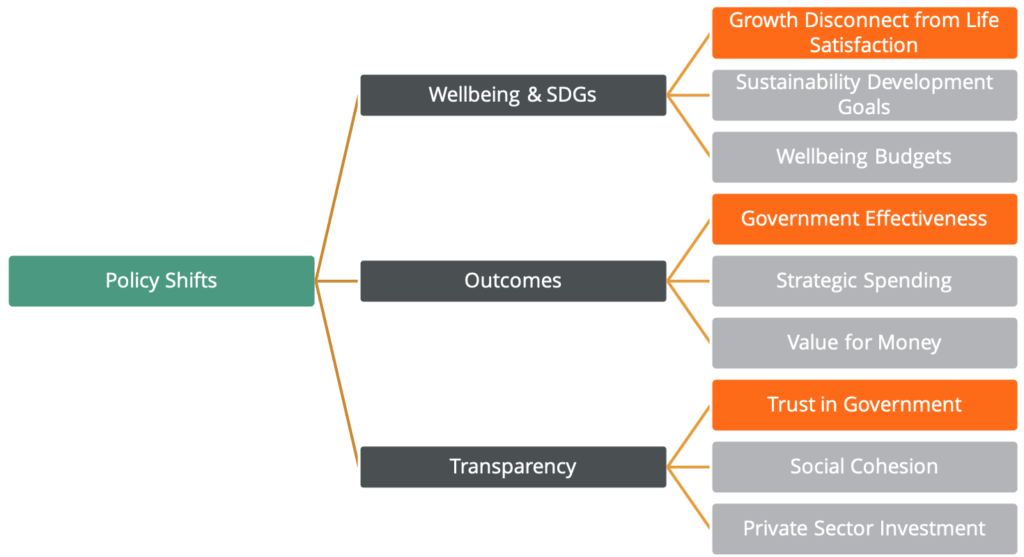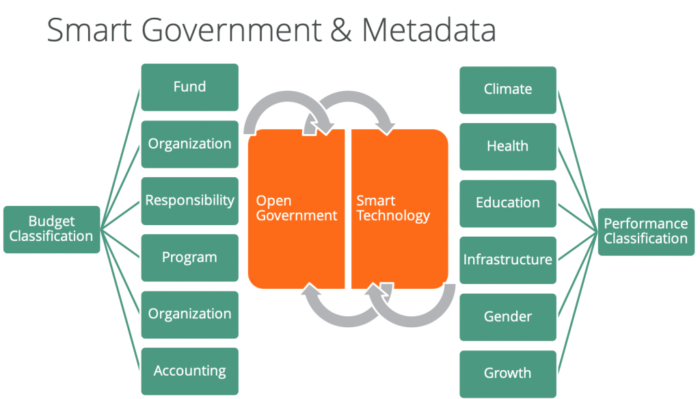As a company committed to enabling PFM Reform That Matters, FreeBalance works at the intersection of public finance and sustainability. We fully support the IPSASB initiative to develop public sector sustainability reporting standards and believe that their recent event with IFAC and Accountancy Europe on Equipping the Public Sector for Sustainability Action was a timely reminder of the work still to be done on this important topic.
Public Sector and the Sustainable Development Goals
Ross Smith, Program and Technical Director of the International Public Sector Accounting Standards Board (IPSASB), outlined how the public sector is responsible for driving the sustainability agenda. Indeed requirements for sustainability reporting have the power to advance transparency, comparability, and accountability.
How Do Sustainability Standards Fit Into Public Finance Trends?
The move towards sustainability standards is part of a modernizing policy shift that we’re seeing in the global public sector. Policy shifts need to be supported by public finances and supported by government Financial Management Information Systems (FMIS). We support the development of public sector sustainability reporting standards to better align policy with citizen priorities.
What Are The Main Public Sector Policy Shifts?

Wellbeing and the Sustainability Goals
- Overall dissatisfaction in quality of life, and lack of social cohesion in many countries, often affected by climate and environmental issues
- Adoption of the Sustainability Development Goals (SDGs), but results show that these will not be met in many countries, and there are no reporting standards, hence the need for international public sector accounting guidance
- Adoption of wellbeing and inclusive budgets in many country and sub-national governments, where sustainability, environment, and infrastructure are major concerns
Government Outcome and Performance
- Overall dissatisfaction of government effectiveness, often because results are not aligned to citizen priorities
- Adoption of strategic spending, particularly social public investments and infrastructure public investments in areas like climate mitigation and climate adaptation
- Adoption of value-for-money discipline in procurement and public investments, although many of these methods are not directly connected to government priorities for decision-making
Government Transparency
- Overall distrust in government and public services, particularly with lack of transparency that implies something to hide
- Adoption of fiscal transparency around social cohesion spending in budget preparation and implementation, including climate mitigation and climate adaptation
- Adoption of fiscal transparency to encourage private sector investment, especially sustainability fiscal risks
- Adoption of debt transparency to improve trust in government, lower cost of capital and enhance audit and oversight
Sustainability Standards and the FreeBalance Accountability Suite™
The FreeBalance Accountability Suite™, designed exclusively for government, includes a multiple-year Chart of Accounts. The COA designer enables adding segments and reporting objects over time. This supports modernization through progressive activation. And, the Chart of Goals designer supports aligning output and outcome targets to COA hierarchies to support government performance management. Budget classifications in the COA integrate directly with performance classifications in the COG. Additional benefits include fiscal sustainability transparency for open government, and aligning procurement value-for-money, including smart technology investments, with national development strategies.

Conclusion
Insights From IPSASB Event
- Sustainability is not something outside of the budget cycle, should be thought as integral to budgeting
- Governments are at the nexus of sustainability spending, influence, and regulations
- Global perspective needed to make standards applicable for different countries
- Lack of sustainability is a fiscal risk, and an investment risk for the private sector
- Sustainability needs to be integral across the government budget cycle
- Public sector spends more than 1/2 global GDP
- Dialog beyond governments needed
- Sustainability reporting improves decision-making
- Need for global sustainability perspective
- Importance of sustainability transparency
- Investors interested in sustainability reporting in private and public sectors
